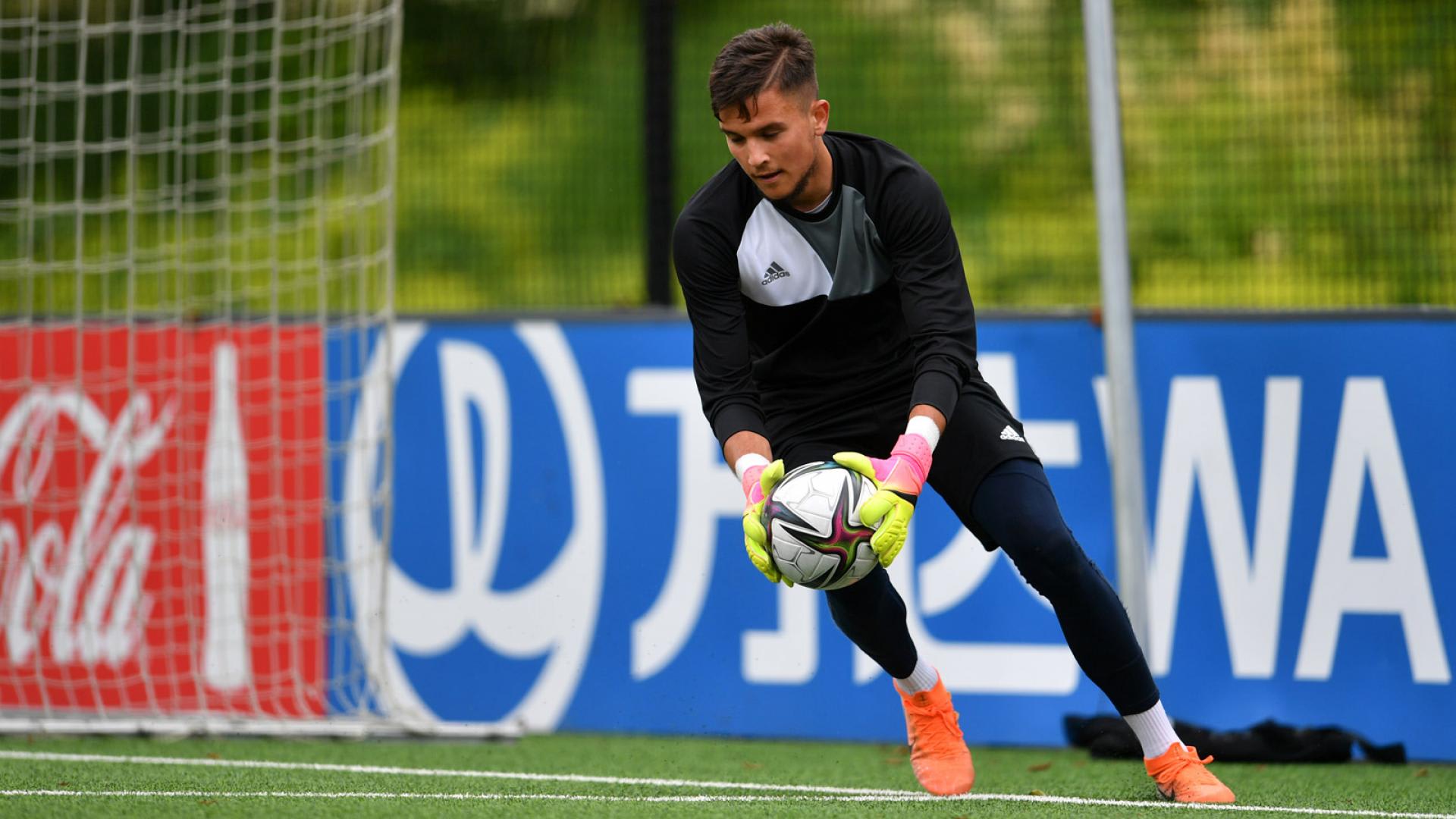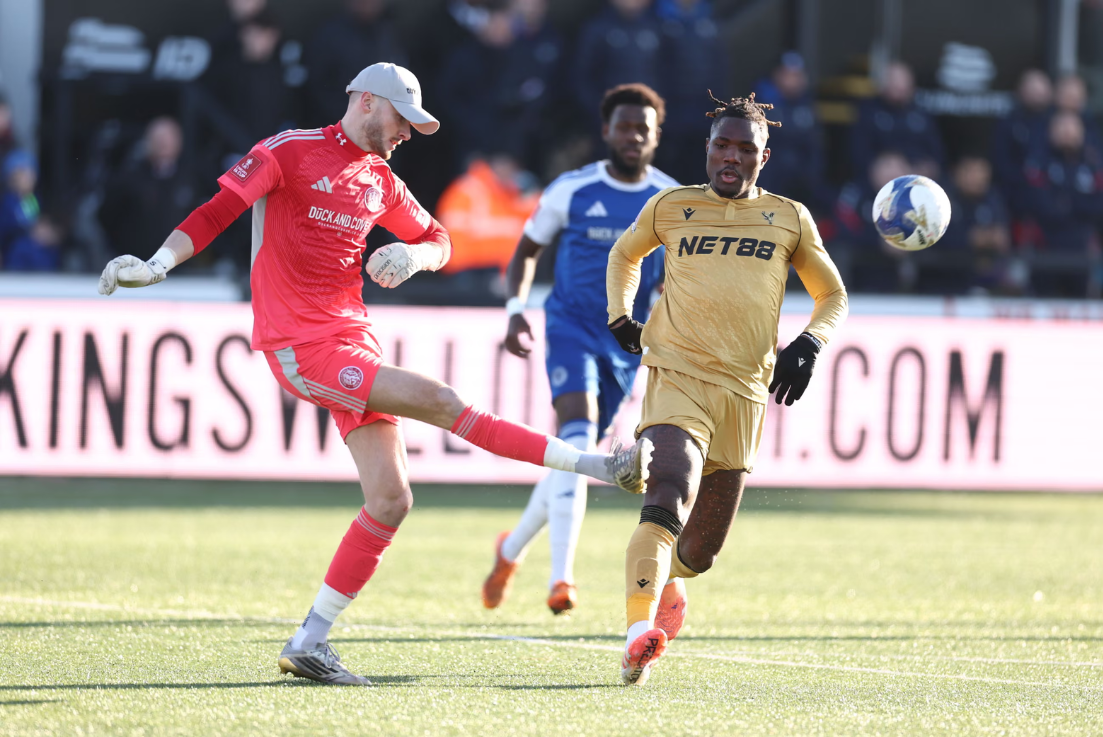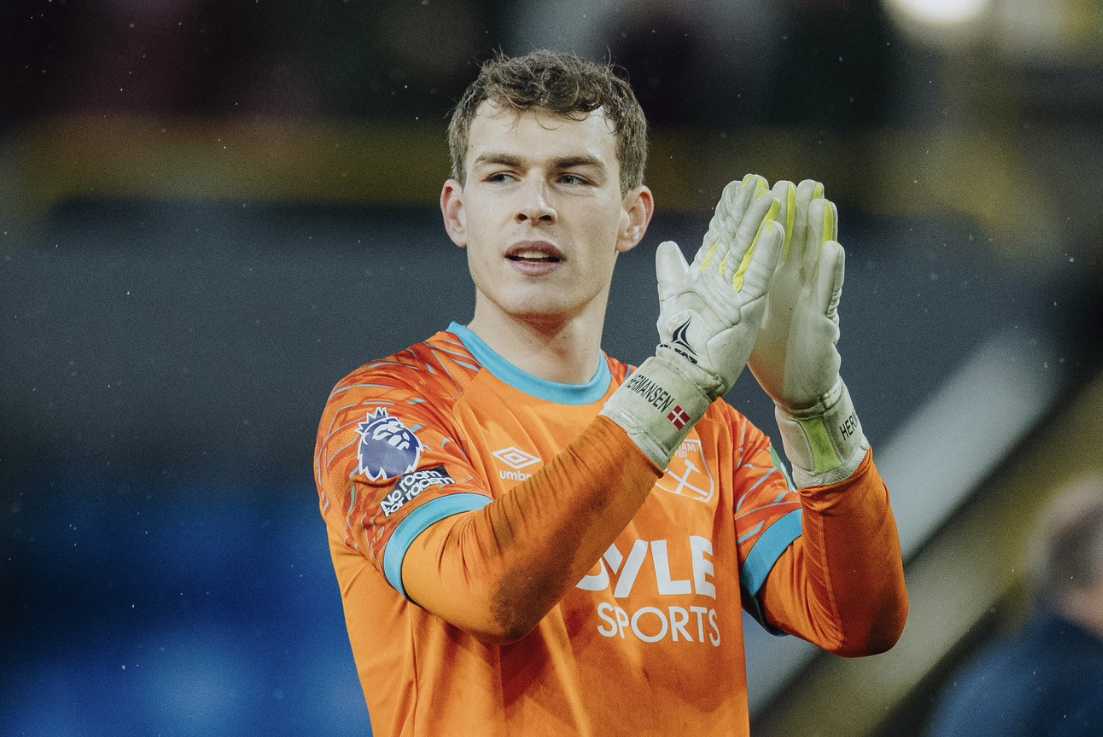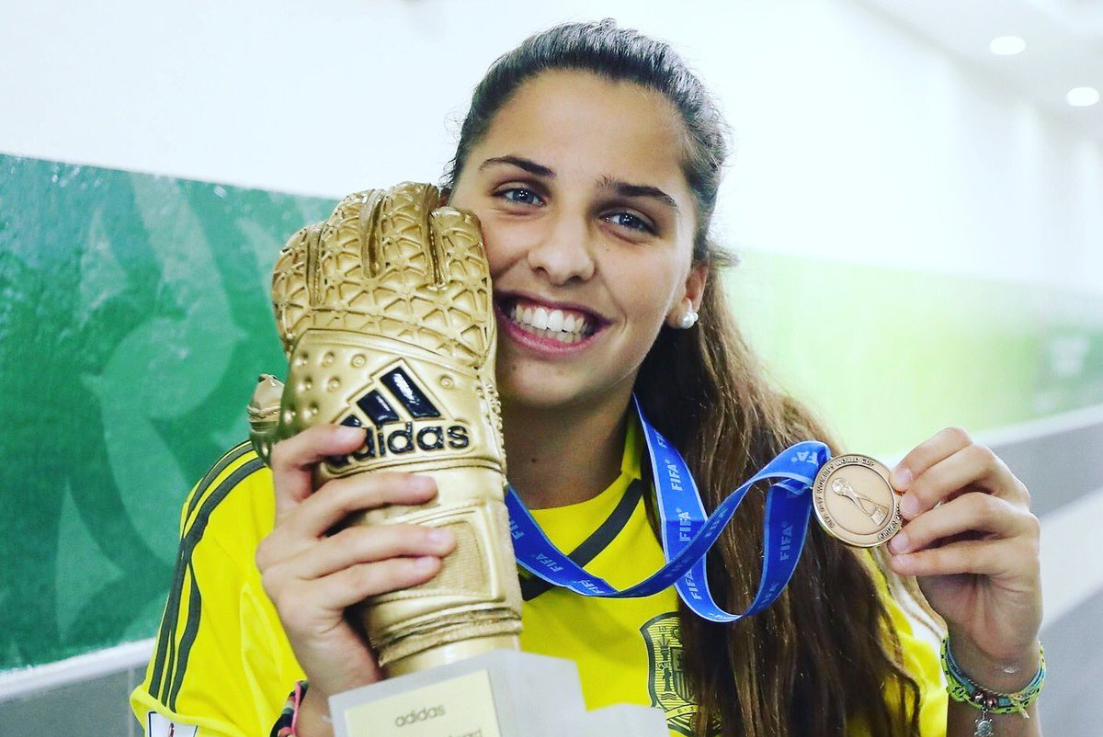A Premier League goalkeeper and goalkeeper coach give an insight as to the benefits and challenges of life on loan.
This summer's transfer window saw a plethora of loan moans for goalkeepers. These deals happen for several reasons, such as providing injury cover or enabling young players to gain valuable senior experience.
Such senior experience is the reason why Newcastle United’s Under 21s goalkeeper Aidan Harris has jetted over the Irish Sea to link up with Northern Ireland Premier Division side Coleraine FC for the first half of the season.
Harris spoke to Goalkeeper.com to discuss the loan move came about.
“Last season, we knew that I was going to come on loan this season, and I think with about five or six games left of last season I had a meeting with my coaches to say ‘what do you want to get out of the last six games’", explained the 18 year old.
Throughout the majority of academy football, players don't ‘compete’ in the same way they might in non-league or even Saturday football. There is always competition for contracts, but aside from youth cups, week to week league football essentially comprises friendlies.
In this regard, it's vital that young players tap into a new mindset when going on loan. Winning matters. “One big thing was to try and play with that professional mentality of wanting to win, wanting to get the clean sheet, wanting to get three points, just for that transition into the men's football" Harris commented.
"I came in to Coleraine, we've had four games, won two and then drew one. We've also had three clean sheets. That mentality focus prepared me very well to come in and have this great start that I've had, and just keep on going.
“Even just having conversations with various people around the club, like some of the secretaries everyday staff, who not only work here, but are big supporters, just to find out what the club means to certain people…that kind of fired me up even more.
“I just want to help the lads out whenever I can, and they've been great since I came in.”
It's 251 miles from St James’ Park to the Showgrounds, home of Coleraine FC, meaning that Harris has had to move away from home in order to facilitate this loan move.
It' been a bit of a culture shock for the young goalkeeper. “It all happened really fast", he admitted.
“I got the call on the Wednesday saying I was going, and then the Thursday morning, I flew here, so I didn't have much time to process it and try and figure out what I'm going to do. And then when I got here, I wasn't yet allowed to train, so I just watched training. After that, I came back, unpacked my clothes, and then it sunk in…I had to cook my tea!
“But no, it's been brilliant. I've been here about three weeks, and I feel like I have already matured.
“I've learnt a bit more about myself and a lot more about the game. I just need to continue to kind of come on this path and embrace everything in my stride.”
Harris also added that while he is no Jamie Oliver in the kitchen, he can make a good Spag Bol.
If Harris wants inspiration for what a few loans can do for a goalkeeper’s career, he only needs to look at the current England nmber one Jordan Pickford, who started his career at Newcastle’s bitter rivals Sunderland.
Pickford famously spent time at Darlington before joining the likes of Alfreton Town, Burton Albion, Carlisle United, and Preston North End before making his debut for the Black Cats in an FA Cup defeat to Arsenal in 2016.
Harris is aware of what the loans for Pickford did for his career.
“I want to make it clear that I want to keep as many clean sheets as I can, because that's how you win games", the youngster said.
“You can't lose if you keep your clean sheets. At the same time I want to be exposed to making mistakes in front of people, having to deal with that adversity, being exposed to real raw men's football, which I think is going to be brilliant in its own way.
“It can only mean one great thing. Jordan Pickford went to about four or five clubs before he started actually playing for Sunderland.
“It can turn you from a boy to a man quickly. I feel like even my beard’s coming through now that I've come here!
It's not just the players that can benefit from a loan move, but also the clubs themselves.
From helping to push goalkeepers on to that next level to covering for injuries, there are a multitude of reasons why loans are used.
Adam Skinner is the lead academy goalkeeper coach at Premier League side Nottingham Forest, and he walked us through the thought process a club goes through when deciding which goalkeeper should go out on loan to which team.
“In terms of how we identify the right loan for a goalkeeper, at different age groups, to start with the U18s the level of the loan is less important to us as opposed to the experience they’re going to get, so we’re quite comfortable sending them out to a step five, potentially step six club.
“But we obviously want them to go out and play.
“I think one of the downsides, so to speak, of academy football is that teams up to U18s tend to play in quite a similar fashion so it is pretty predictable sometimes for the goalkeepers and pretty similar in games.
“Sending them out on loans to a non-league club gives them opportunities to practice different elements of their game that they haven’t been exposed to at academy level. For example, crosses coming in from slightly different areas of the pitch, balls coming back to front quicker, having to defend space. I think being asked to play slightly longer, more consistently…these are things that sometimes they don’t get exposed to doing at academy level. I think it’s really important they get those opportunities to develop that skillset because that’s going to be important if they want to try and carve out a career in the game.
“I think the most important bit is that they’re going to get opportunities to play.”
One thing all clubs want is for their loanee to be successful. But what actually constitutes a successful loan from a coach's perspective? How do top clubs measure their goalkeeper's progression?
“We send the goalkeeper out on loan with the idea of gaining experience and I think [by] experience, obviously, we mean about playing but also the environment. So how does it feel to be in a changing room with more senior players who are there to win games of football, how do they deal with the expectation of that?
“How do they deal with the expectation of crowds, how do they deal with the expectation of performing, as opposed to always just being around that development cycle?
“So sometimes I think a good loan for us can also be the goalkeeper maybe going through a slightly tougher time and having to deal psychologically with that, and then obviously us as a club supporting them and them being exposed to different managers, different coaches who might have a different way, as opposed to what it they've experienced in academy football.
“On the other end, towards U21 or ‘B team’ football, we want to make sure that they give a good account of themselves and we put them into a club that we feel is going to fit their profile. Say, for example, if we had a goalkeeper who wasn’t particularly confident playing out from the back into small areas and was more towards that performance level, we probably wouldn't put them into that type of a club, because actually we want to try and start them to have a career in the game and if that loan goes badly, it might impact their future career.
Skinner summarised succinctly: “I think age and stage are really important when trying to dictate what type of loan they’re going to go on.”
It's a game of experience, and experience comes at every age. For those between the sticks and those watching from the sidelines, loan spells can be tough. But for most successful goalkeepers today, they've been the start of ‘make’, rather than ‘break’.









